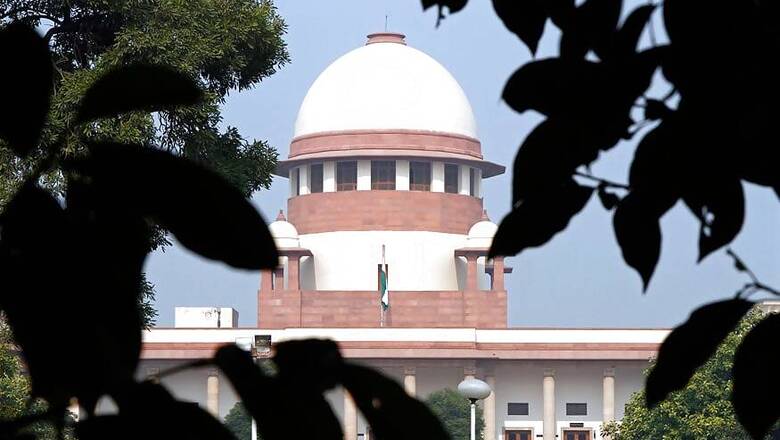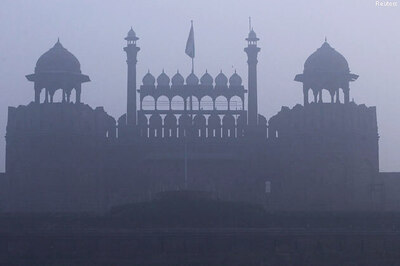
views
New Delhi: Islam and faith of a Muslim cannot be tested on the basis of any extreme or absolute views, the Supreme Court held in its Ayodhya judgment.
The five-judge bench said it is not for a court to interpret Hadees or question the faith of worshippers based on certain unqualified ideas of what is Islam, or how and where namaz should be offered.
“The true test is whether those who believe and worship have faith in the religious efficacy of the place where they pray. The belief and faith of the worshipper in offering namaz at a place, which is for the worshipper a mosque, cannot be challenged,” said the top court.
It said that as a secular institution, the Supreme Court, must steer clear from choosing one among many possible interpretations of theological doctrine and must defer to the safer course of accepting the faith and belief of the worshipper.
“Above all, the practice of religion, Islam being no exception, varies according to the culture and social context,” held the court.
The occasion for the Bench to make these important statements arose in the wake of attempts by senior advocate PN Mishra, who on behalf of Akhil Bharatiya Shri Ram JanmBhumi Punrudhar Samiti, sought to demonstrate that the Babri Masjid lacked essential features of a valid mosque under Islamic jurisprudence.
Placing reliance on the texts of the Hadees, Mishra sought to urge that there was a breach of some cardinal principles of Islamic law in so far as the Babri mosque was concerned. He said a mosque must have a Vazoo or place for ablution; it should not contain visual images of idols, floral designs or the human form; no ringing of bells is permissible within the precincts of or in the area surrounding the mosque; on one plot of land, two religious places are impermissible, and many more.
Advocate Mohd Nizamuddin Pasha, representing the Sunni Waqf Board, controverted Mishra’s arguments as being incorrect interpretation of Hadees, and finally said it is a purely spiritual idea of a worshipper about what makes worship dearer to Almighty Allah.
The top court then dismissed Mishra’s submissions, stating his argument would require it to embark upon a journey into theological doctrine and to apply the doctrine to deduce whether every one of the features prescribed by the Hadees for the location or construction of a mosque have been fulfilled.
“During the course of the submissions, it has emerged that the extreme and even absolute view of Islam sought to be portrayed by Mishra does not emerge as the only available interpretation of Islamic law on a matter of theology. Hence, in the given set of facts and circumstances, it is inappropriate for this Court to enter upon an area of theology and to assume the role of an interpreter of the Hadees,” held the bench.
It went on to say: “It would be preposterous for this Court to question it on the ground that a true Muslim would not offer prayer in a place which does not meet an extreme interpretation of doctrine selectively advanced by Mr Mishra.”
Cultural assimilation, the court said, is a significant factor which shapes the manner in which religion is practiced. “In the plural diversity of religious beliefs as they are practiced in India, cultural assimilation cannot be construed as a feature destructive of religious doctrine. On the contrary, this process strengthens and reinforces the true character of a country which has been able to preserve its unity by accommodating, tolerating and respecting a diversity of religious faiths and ideas,” said the bench.
It thus concluded: “There can no hesitation in rejecting the submission made by Mr Mishra. Our Court is founded on and owes its existence to a constitutional order. We must firmly reject any attempt to lead the court to interpret religious doctrine in an absolute and extreme form and question the faith of worshippers. Nothing would be as destructive of the values underlying Article 25 of the Constitution.”



















Comments
0 comment